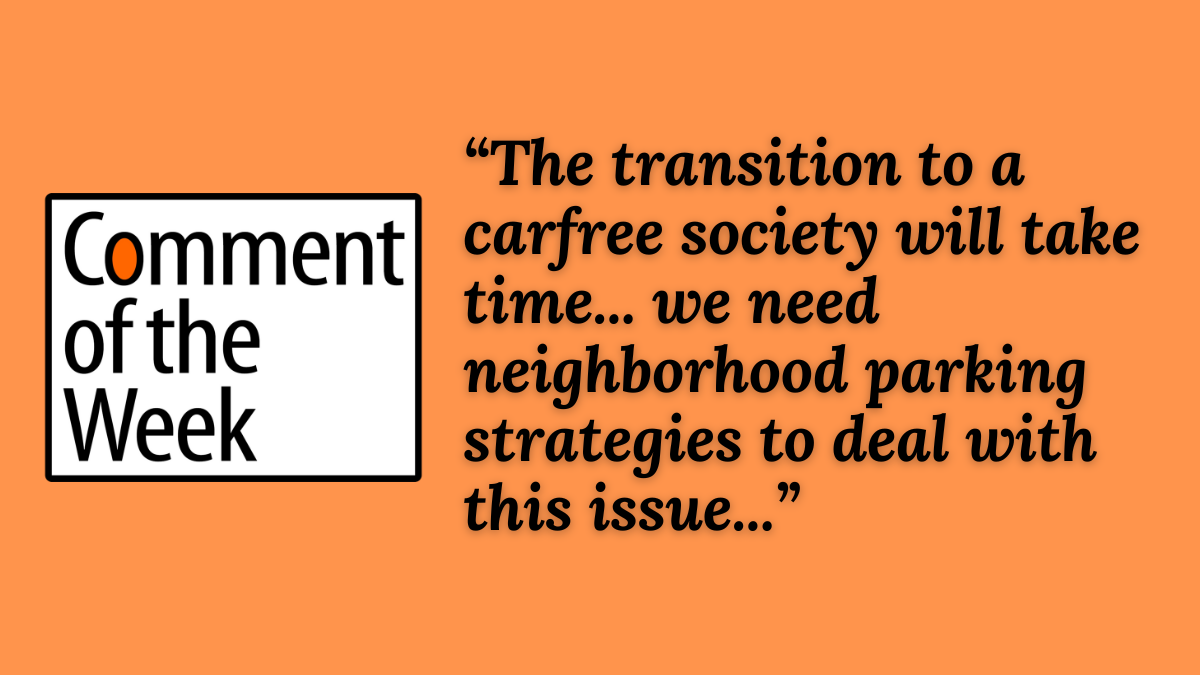The comment thread under Friday’s 33rd Ave bike lane story was among the strongest I’ve seen. The expertise that many BP commenters share sometimes goes beyond the original story, and the comments themselves end up being a whole new information source. That’s what happened with this thread.
One theme running through the comments was the city’s obligation (or rather, lack of obligation) to provide parking for private vehicles in public spaces.
Half of the comments were strong enough to be the “Comment of the Week,” I went with Keith’s for a few reasons. One, he’s read the other comments in the thread and is adding to the conversation. Keith is well-informed about local and state policy. And finally, he steps back from the immediate issue and looks at the big picture.
Portland is making a difficult transition to becoming a city which relies less on cars. Can we improve how we’re going about this so that cycling doesn’t have a big bulls-eye on it’s back?
I also thought it was interesting that Keith’s comment aligned with an editorial by Jonathan back in 2012 where he wrote, “Despite Portland planners’ dreams, most people still own cars and they need a place to put them… This increased demand on neighborhood parking has a lot of real consequences — many of which have come up in bike-related projects.”
Here’s what Keith had to say:
I agree with Woodsong’s comment about an agency in chaos. PBOT has historically had its problems, but it is clearly entering a new phase and beginning to spiral out of control.
Quickly following the SW Broadway debacle, we have another! This is disturbing on multiple levels – many articulated in the preceding comments. I’ll add a couple more.
First, PBOT is quick to point out that it doesn’t have sufficient funding to implement planned bicycle infrastructure projects in the TSP and In Motion plans, but then has no qualms about wasting it by installing a facility and then taking it out! Your tax dollars at work.
Second, the policy to not require off-street parking is appropriately intended to reduce housing cost (as with the 4-plex in the story), but the city (and state that now mandates this approach) has failed to recognize how this will only make on-street parking removal for active transportation needs more difficult politically and practically.
The transition to a car-free society will take time, and we need neighborhood parking strategies to deal with this issue so we don’t inadvertently create political roadblocks to providing the active transportation infrastructure that is essential for us to become car-free.
Thank you for your insights, Keith. A lot of other comments in this thread touch this same subject and are worth reading.


